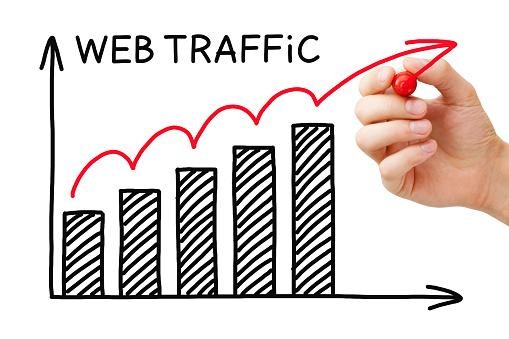Businesses are evolving, focusing on digital transformation and online presence. But having just a website isn’t enough. Your website must rank high in search engine results to stand out in the crowded digital marketplace. To rank high, you must follow the best SEO practices—one of the most critical factors in determining your website’s ranking. A well-optimized URL helps search engine crawlers to index your website and provides a better user experience for your visitors. In this blog post, we will see how you can improve your website’s URL ranking using different methods and ways.
1. Use Relevant Keywords in Your URL
When search engines crawl websites, they rely on keywords to understand each webpage’s content. By including relevant keywords in the URL of a webpage, you can provide additional signals to search engines about the content of the page. This can help the search engine better understand the topic of the page and its relevance to a particular search query. This can improve the webpage’s ranking in search results for queries that include those keywords. It’s significant to note that simply adding keywords to a URL does not guarantee improved ranking; the quality and relevance of the content on the page is still the most critical factor in determining search ranking.
2. Use Clear and Descriptive URLs
Clear and descriptive URLs are essential for both search engines and users because they provide relevant and meaningful information about the content of a web page. Search engines use URLs to comprehend the topic and context of a page, and they often display URLs in search results. This practice makes it easier for search engines to crawl and index pages, which can improve a website’s search engine optimization (SEO) and ranking. Users also benefit from descriptive URLs since they can quickly identify the content of a page and determine if it is relevant to their search. A well-structured URL can also enhance the user experience by making it easier to remember and share links on other pages.
3. Avoid Duplicate Content and URLs

Duplicate content and URLs can negatively impact URL ranking because search engines like Google prioritize unique and original content. When search engines encounter multiple copies of the same content or multiple URLs with identical content, it becomes difficult to determine which version to show in search results. This can result in search engines penalizing the website by lowering its search ranking or even removing it from search results altogether. Additionally, duplicate content and URLs can weaken the link and page authority. To avoid this issue, website owners should ensure all content is unique, and duplicate URLs are canonicalized or redirected appropriately.
4. Use Short URLs
Shorter URLs can positively impact URL ranking for several reasons. Firstly, they tend to be more user-friendly, which increases the likelihood of users sharing and linking to the page. Secondly, shorter URLs often contain fewer irrelevant words, which can improve the overall relevance of the URL to the content on the page. Search engines also favor concise URLs, making them easier to crawl and understand.
5. Optimize URL Structure
The URL structure of a webpage can significantly impact its ranking in search engine results. Search engines analyze URLs to determine the relevance and authority of a webpage. A well-structured URL that includes relevant keywords is easy to read and uses hyphens to separate words can improve a webpage’s ranking. URLs that are too long, contain irrelevant or repetitive information, or use underscores instead of hyphens can negatively affect a webpage’s ranking. In addition, static URLs that do not change over time can provide a more consistent and predictable user experience, positively impacting ranking. Overall, a clear and relevant URL structure can assist search engines in understanding the content of a webpage and improve its reach in search results.
6. Improve Your Website Design

This optimization can improve your website’s URL rankings. Since 52% of users surf the internet with their phones. Making your website design user-friendly can enhance your website’s URL ranking. A well-designed website is easy to navigate, user-friendly, and accessible on all devices. Additionally, search engines prioritize websites that offer visitors the best user experience, including fast loading speed, easy navigation, and visually appealing design.
7. Utilize Internal-Linking
Internal linking means the practice of linking pages within the same website. When done correctly, internal linking increases URL ranking by giving search engines a better understanding of the website’s structure and the relationships between its pages. It spreads authority and relevance within the web pages, directing search engines to only the essential pages on the website. By linking relevant pages together, search engines can more easily crawl and index the website. Internal linking also navigates website visitors and discovers related content, improving user engagement and satisfaction.
8. Utilize External Linking
Also called backlinking, external linking refers to links that point from other websites to your website. These links are essential for search engine optimization (SEO) because they are indicators to search engines that other websites consider your content valuable and trustworthy. When search engines see that many high-quality websites link to your content, they are more likely to rank your website higher in search results.
9. Use HTTPS

Using HTTPS (Hypertext Transfer Protocol Secure) can positively impact URL ranking by providing websites with security and encryption. This helps protect sensitive data and prevents unauthorized access, enhancing a website’s trustworthiness in search engines’ eyes. Additionally, Google has explicitly stated that HTTPS is a ranking signal, meaning that sites using HTTPS may receive a slight boost in search engine results pages.
10. Improve Website Speed
Website speed is crucial for URL ranking. When a website takes longer to load, it leads to a poor user experience and a higher bounce rate. A high bounce rate indicates that visitors leave the website quickly without engaging with the content, which can negatively impact the website’s URL ranking. Slow website speed leads to lower crawl rates by search engine bots, which can further reduce the website’s URL ranking. Therefore, it is essential to ensure that websites load quickly to provide a positive user experience and improve their URL ranking.
Implement Strategies to Improve Website URL Ranking

Implementing effective strategies can significantly improve the URL of your website. By analyzing your target audience, creating high-quality content, optimizing for search engines, and providing the best user experience, you can attract more traffic, engage visitors, and increase your website URL structure. While it may require effort and dedication, the long-term benefits are well worth it. By following best SEO practices, you can establish a robust online presence, build trust with your audience, and ultimately drive more revenue for your business.
So don’t hesitate to take the steps necessary to improve your website today and watch your success grow!



